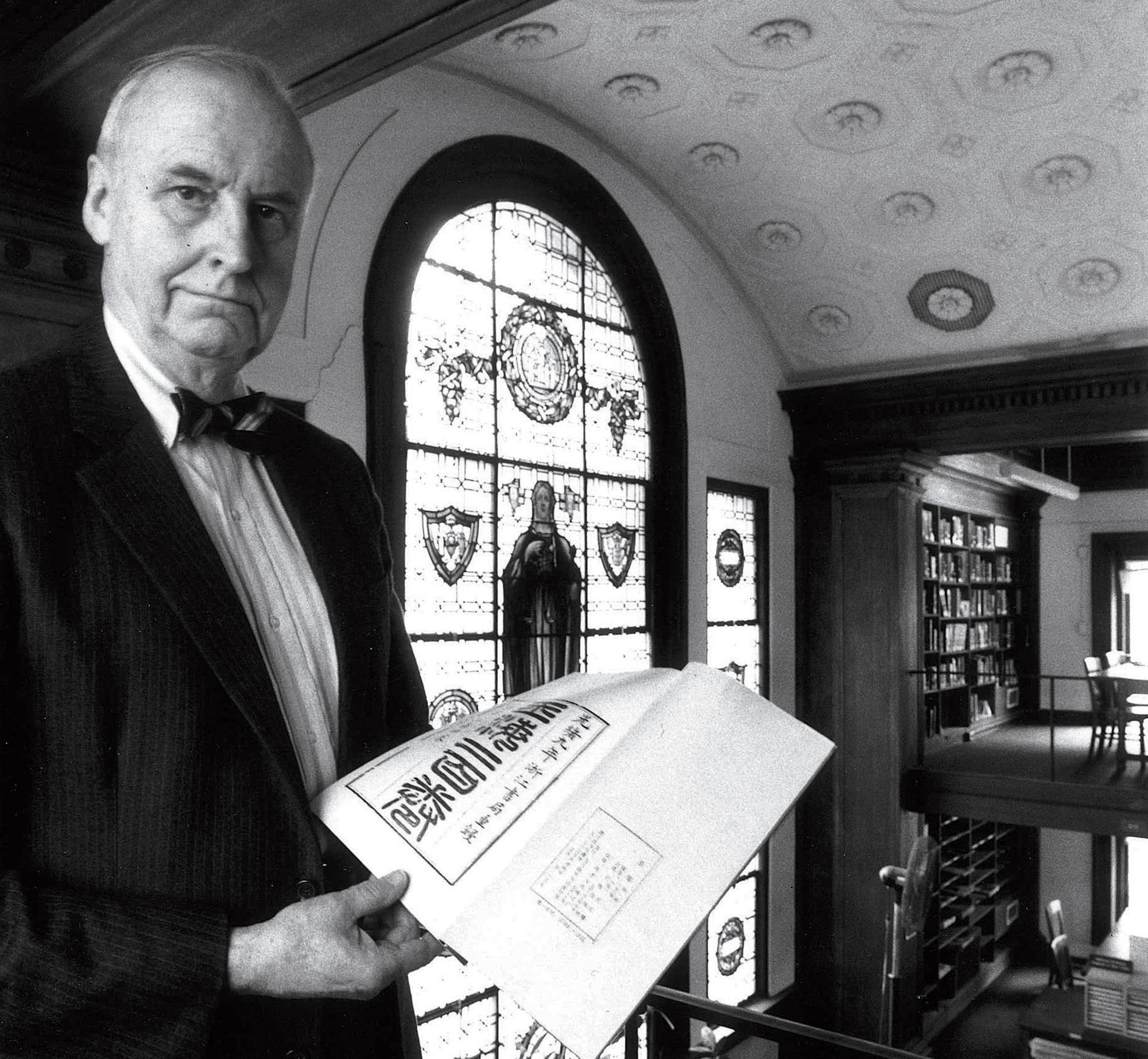Wm. Theodore “Ted” de Bary ’41CC, ’53GSAS, ’94HON, a pioneering scholar of East Asian studies who taught at Columbia for nearly seventy years, died on July 14. He was ninety-seven.
Beloved by generations of Columbia students who took his popular courses on Chinese literature and philosophy, de Bary was among the greatest Sinologists of his era. An authority on Confucius, he wrote several acclaimed books, including The Liberal Tradition in China and Asian Values and Human Rights, that reveal the Chinese sage’s enduring influence. De Bary’s contributions were hardly limited to Sinology, however. As the driving force behind a Columbia University Press book series that made centuries of Chinese, Japanese, and Indian source texts accessible to English-language readers for the first time, he is widely credited with laying the groundwork for the modern field of East Asian studies.
Born in the Bronx and raised by a single mother in Leonia, New Jersey, de Bary entered Columbia College on a full scholarship in 1937. He graduated just months before the bombing of Pearl Harbor and was soon recruited to serve as a naval intelligence officer in World War II. After the war, he returned to Columbia to pursue a doctorate and never left. Hired as a professor immediately upon earning his PhD in 1953, de Bary rose to become chair of the Department of East Asian Languages and Cultures, a position he held from 1960 to 1966; later he served as University provost from 1971 to 1978. Along the way, he founded the Heyman Center for the Humanities and accumulated numerous teaching honors, including the Society of Columbia Graduates’ Great Teacher Award. He received the National Humanities Medal in 2013.
A Columbia man through and through, de Bary was known for his unwavering support of the Lions football team, for his blue bowties, and, perhaps most of all, for his devotion to undergraduates. After officially retiring in 1989, he kept teaching on a pro bono basis for the rest of his life. He taught his final course, an undergraduate seminar called Nobility and Civility, this past spring.
“For Ted, teaching was as vital as reading or writing,” says Paul Anderer, a Columbia professor of Japanese literature who was a colleague of de Bary’s for nearly four decades. “That is why, even as he slowed in old age and found it hard to walk, he kept moving toward the classroom. He needed to open himself to students. He wanted to show them that learning is lifelong, that there is always something more to know, some better way of understanding the tragedies and joys of being human.”



